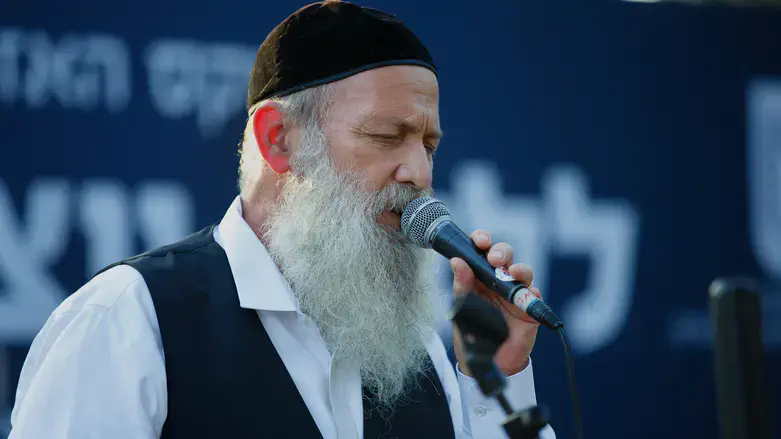
Haredi singer Shuli Rand told Kan his thoughts on the feeling of losing control, the role of music in difficult times, and his views on haredi recruitment and the importance of open dialogue.
"I see myself as part of the broader Jewish community here in Israel," Rand explained. "I’m involved with the haredi community, the religious-national community—really, all segments. I’m part of it all."
On the topic of haredi recruitment, particularly among those who are not working, Rand shared a nuanced perspective: "Our strength and survival are deeply tied to the Torah world. But we can’t ignore the suffering of others. It’s not right that people who could serve are left out. We need to find a way to bring them into the fold with respect and love—not by force. It’s about willingness, not coercion."
Rand also praised the religious-national community, calling them "a group of exceptional Torah scholars, whose depth of knowledge is truly inspiring." He expressed optimism that many in the haredi community do want to contribute to society, pointing to the early days of the war when, according to him, there was a "remarkable sense of solidarity and concern." He believes this could be a turning point for social integration, although he worries that "the opportunity is slipping away" due to a shift towards more forceful dialogues. "But the desire to integrate is there," he added.
Turning to his new album, Rand explained that it came together unexpectedly: "It wasn’t even meant to be an album. Our reality itself is a rolling event. Until recently, we thought we could control things, but we’ve learned that events unfold beyond our control."
One of the standout tracks, A Voice of Silence, encapsulates this sense of uncertainty. "It’s about the feeling of losing control," Rand said. "You can prepare, but life always catches you off guard. Redemption doesn’t come from material things, alcohol, or drugs—it’s about surprise."
Reflecting on the role of music in these turbulent times, Rand said: "I truly believe in music as a healing force. It’s a place for reflection. Music asks questions, provides answers, expresses anger, and offers comfort. It lets us articulate deep emotions, sometimes without needing words."
Asked about creating art in a world filled with hardship, Rand responded simply: "The world is tough. Judaism isn’t about hiding from pain, but confronting it with truth—the truth of the Torah. Even King David wrote from a place of struggle, from crises, with raw honesty."
On the subject of state ceremonies, Rand expressed ambivalence: "I’m not particularly drawn to ceremonies. There was one I participated in that caused controversy, and looking back, I realized it wasn’t the right place for me. I don’t boycott anyone—I just don’t want to be in situations that spark conflict. That’s not what I’m trying to do."
Finally, Rand spoke about the response to his performances following the album's release. "There’s clearly a thirst for both comfort and thought through music," he said. "It warms my heart to see an audience that cares enough to come together, to listen, and to connect."
---
Let me know if you'd like any further adjustments!
